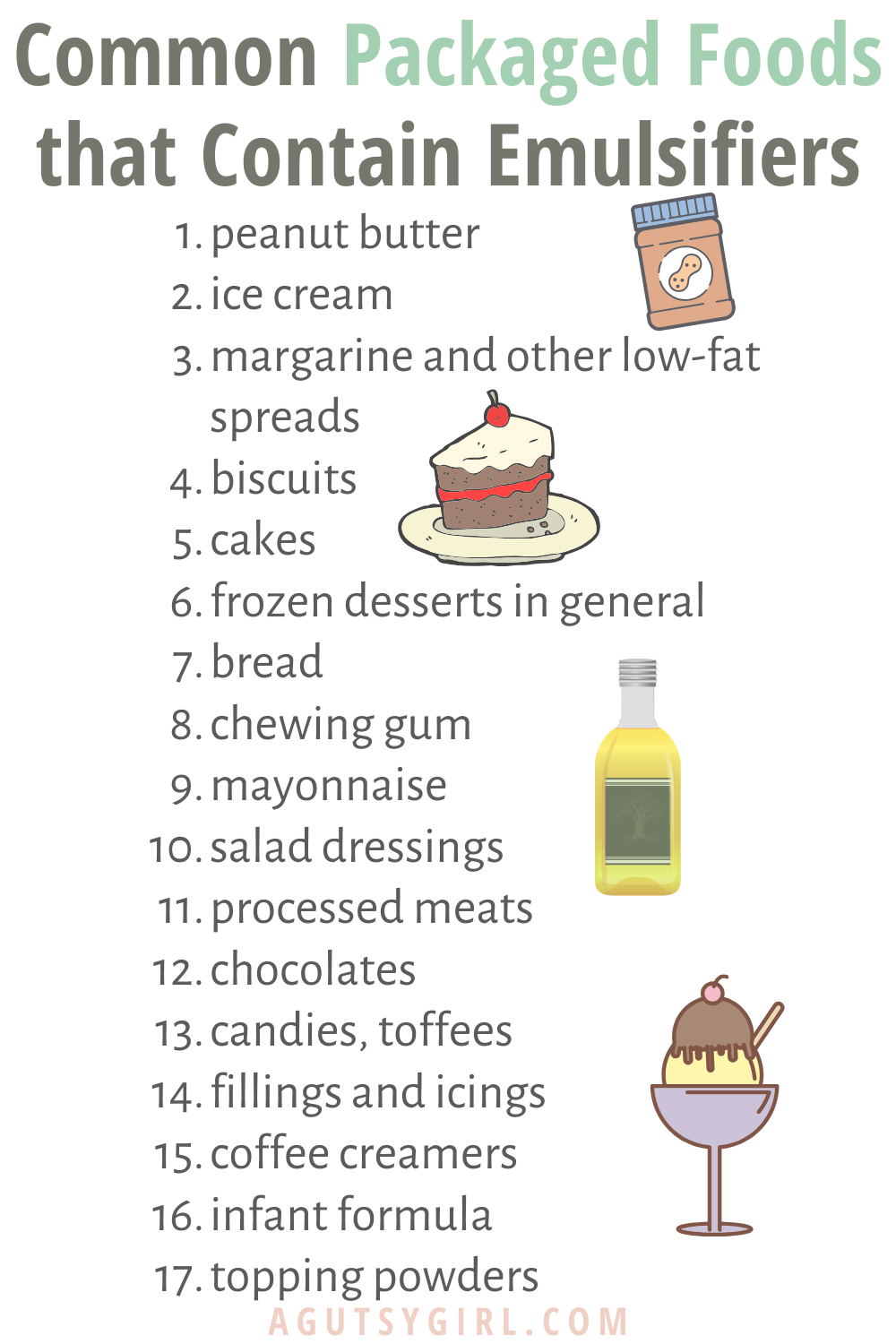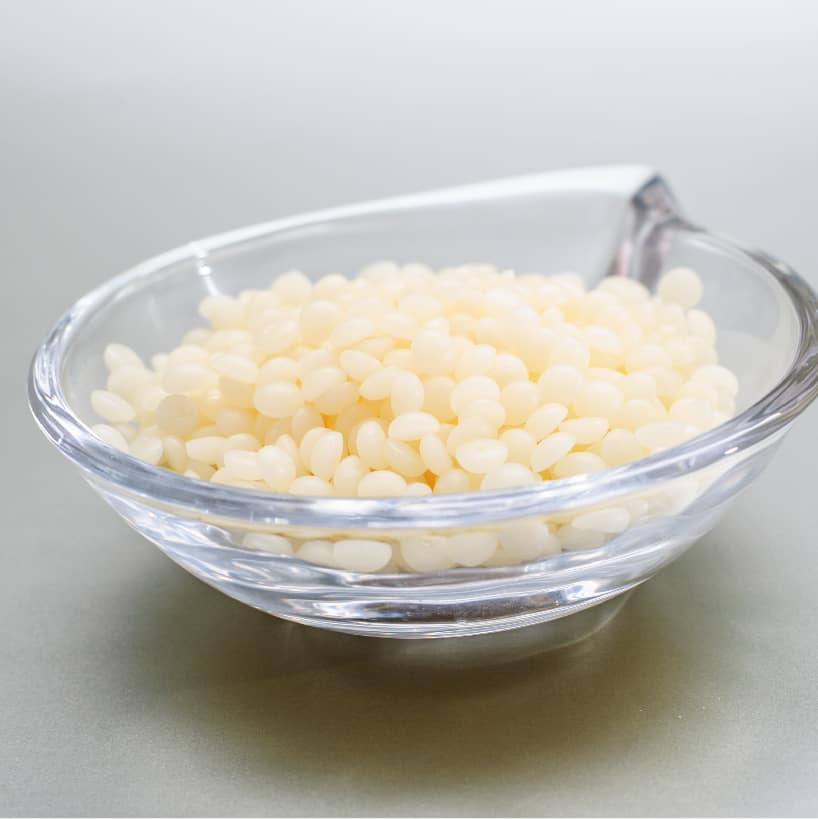Everything about the Function of an Emulsifier in Food and Its Significance in Modern Food
Emulsifiers are essential in contemporary cuisine, facilitating the mix of immiscible liquids like oil and water. Their capacity to maintain mixes boosts the structure and taste of numerous food. From salad dressings to baked items, emulsifiers play a substantial role in both industrial and home food preparation. The science behind their feature and the future technologies in their usage remain much less explored. What extra could be discovered concerning these vital culinary agents?
Comprehending Emulsification: The Scientific Research Behind the Process
Although emulsification might seem like a straightforward cooking strategy, it entails intricate scientific principles that are crucial for developing steady mixtures of immiscible liquids, such as oil and water. At the heart of this procedure lies the idea of surface stress, which protects against both liquids from mixing normally. Emulsifiers, compounds that minimize surface stress, play an important role in promoting the combination of these fluids. They possess both hydrophilic (water-attracting) and hydrophobic (water-repelling) residential or commercial properties, permitting them to secure themselves at the user interface in between oil and water.
When an emulsifier is presented and the mix is upset, it forms a protective obstacle around spread droplets of one liquid within the other, supporting the blend. This activity not only improves texture and mouthfeel in food items however likewise adds to their visual allure. Emulsifier In Food. Comprehending the scientific research behind emulsification is essential in modern cuisine, permitting cooks to develop a range of sauces, dressings, and emulsified meals
Usual Types of Emulsifiers Made Use Of in Food
Emulsifiers are crucial components in the food industry, playing an important role in stabilizing combinations of oil and water. Numerous kinds of emulsifiers are generally used, each with unique properties suited for different applications. Lecithin, derived from soybeans or egg yolks, is among the most popular natural emulsifiers, usually discovered in dressings and chocolates. Mono- and diglycerides, which are acquired from glycerol and fatty acids, are extensively made use of in baked products and margarine to boost texture and expand life span. One more typical emulsifier is polysorbate 80, preferred for its ability to boost the consistency of gelato and sauces. In addition, xanthan periodontal and guar periodontal offer as thickening agents that additionally add to emulsification in gluten-free items. These emulsifiers are important to producing a stable, tasty product in modern food formulations, ensuring a pleasant sensory experience for customers.
The Function of Emulsifiers in Different Food Products
A selection of food rely on emulsifiers to achieve desired structures and security. These materials assist in the mixing of immiscible fluids, such as oil and water, which is vital in several refined foods. In salad dressings, emulsifiers help maintain a consistent mix, stopping separation and improving shelf life. In baked products, they add to an uniform crumb framework and dampness retention, enhancing overall high quality.
Emulsifiers additionally play a considerable role in milk items, such as gelato and yogurt, where they stabilize fat beads, guaranteeing a smooth mouthfeel. Furthermore, in sauces and dressings, they boost viscosity and enhance spreadability. This capability is important in the production of chocolates, margarine, and mayonnaise, where a cohesive product is needed. In general, the use of emulsifiers in various foodstuff is essential to modern food production, improving security and uniformity across a wide variety of things.
Just How Emulsifiers Enhance Appearance and Taste

When included into foodstuff, emulsifiers considerably improve both appearance and flavor, creating a more enjoyable consuming experience. These compounds promote the mixing of active ingredients that typically do not mix well, such as oil and water, resulting in a smoother, creamier consistency. This not just enhances mouthfeel but also permits flavors to spread equally throughout the item, intensifying the overall taste.

Emulsifiers in Home Food Preparation: Tips and Techniques
Exactly how can home cooks successfully utilize emulsifiers to boost their recipes? Emulsifiers play a vital duty in attaining preferable structures and flavors in homemade recipes. Utilizing egg yolks in mayo or hollandaise sauce permits for a secure emulsion, incorporating oil and water effectively. Home chefs can also trying out mustard, which works as an emulsifier in vinaigrettes, making sure a smooth uniformity.
In cooking, integrating lecithin, found in egg yolks or soy, can enhance dough security and wetness retention. In addition, using industrial emulsifiers like xanthan periodontal or guar gum can assist thicken sauces and dressings while keeping a velvety mouthfeel.
When developing see this ice creams or whipped toppings, emulsifiers can stop ice crystal development, causing a smoother texture. By grasping these methods, home cooks can substantially raise their cooking developments, providing constant and satisfying meals that showcase the power of emulsification.
The Future of Emulsifiers in Culinary Advancement
As the culinary globe proceeds to develop, the duty of emulsifiers is poised to come to be progressively ingenious and varied. Breakthroughs in food science are causing the growth of new emulsifying representatives originated from all-natural sources, which deal with health-conscious consumers and boost the sensory top qualities of dishes. Technologies such as plant-based emulsifiers are getting traction, permitting cooks to develop vegan and allergen-free alternatives without endangering appearance or taste.
Furthermore, using emulsifiers in molecular gastronomy is broadening, allowing cooks to explore one-of-a-kind appearances and presentations that mesmerize diners. As sustainability comes to be a top priority, the future might see a change in the direction of environment-friendly emulsifiers that lower environmental impact.
Inevitably, emulsifiers will certainly proceed to play an important duty in culinary technology, bridging the gap between custom and modernity, and allowing cooks to push the boundaries of creative thinking in their kitchens.
Frequently Asked Questions

Are Emulsifiers Safe for People With Allergic reactions?
Emulsifiers can be risk-free for people with allergies, depending on their details level of sensitivities. Nevertheless, particular emulsifiers, derived from Your Domain Name allergenic sources like soy or eggs, may cause responses, demanding mindful ingredient examination and consultation with medical care specialists.
How Do Emulsifiers Influence Food Life Span?
Emulsifiers enhance food rack life by maintaining combinations, stopping splitting up, and minimizing microbial development. This stability helps keep structure and taste in time, enabling items to stay appealing and safe for consumption much longer than without emulsifiers.
Can Emulsifiers Be Derived From Natural Sources?
Yes, emulsifiers can be originated from natural resources such as plants, eggs, and milk products (Emulsifier In Food). These all-natural emulsifiers aid support mixes, boosting structure and uniformity in numerous food applications while being preferred for health-conscious consumers
What Are the Ecological Effects of Emulsifier Production?
The ecological effects of emulsifier manufacturing consist of resource depletion, environment devastation, and air pollution from synthetic procedures. Natural emulsifier sourcing can mitigate some impacts, however in general, industrial techniques still position significant ecological challenges to ecological communities worldwide.

Are There Vegan Emulsifiers Available out there?
Yes, there are several vegan emulsifiers offered in the market, such as lecithin acquired from soy or sunflower, guar periodontal, and xanthan periodontal. These choices satisfy plant-based diets without compromising emulsifying residential or commercial properties.
Emulsifiers are necessary ingredients in the food market, playing a vital function in stabilizing blends of oil and water. A range of food products count on emulsifiers to attain wanted textures and stability. When integrated right into food items, emulsifiers substantially enhance both appearance and flavor, producing an even more enjoyable eating experience. In addition, emulsifiers can stabilize air pockets in whipped products like mousses and lotions, leading to a light and airy appearance. Emulsifiers boost food rack life by stabilizing mixtures, avoiding separation, and decreasing microbial development.